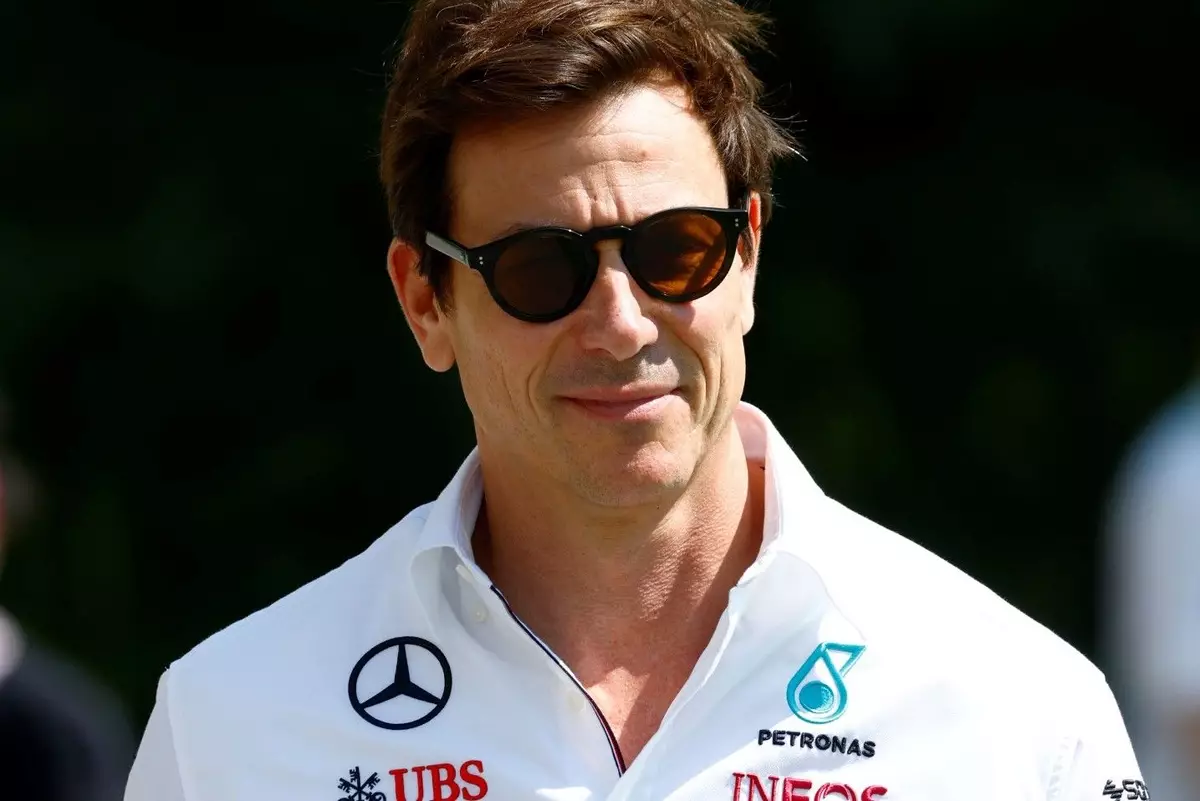The world of Formula 1 (F1) is no stranger to change, and the latest shift that has ignited discussions among fans and analysts alike is the impending departure of Lewis Hamilton from the Mercedes team. A mainstay of the Brackley-based outfit since 2013, Hamilton has not only cemented his place in F1 history through record-breaking achievements, including six world championships, but has also come to symbolize the team’s relentless pursuit of excellence. As he prepares for his final three races with Mercedes before embarking on a new journey with Ferrari in the upcoming season, team principal Toto Wolff has found himself at the center of media scrutiny regarding his comments on this significant transition.
In the wake of Hamilton’s announced departure, comments made by Wolff in the new book “Inside Mercedes F1: Life in the Fast Lane” sparked debate within the media and online communities. Wolff suggested that Hamilton’s move could be perceived as a positive development, as it circumvents the potentially challenging moment when they might have to inform an iconic driver about the need for a change. Some interpreted this statement as an expression of relief, insinuating that Mercedes was ready to part ways with Hamilton. However, Wolff quickly sought to clarify these remarks, asserting that they had been taken out of context.
The nuance in Wolff’s perspective lies in his recognition of the natural progression of age and performance in the high-stakes world of motorsport. In an interview with BBC Radio 4, he expressed concern about the inevitable aging of all individuals in competitive environments—not only drivers but also managers and team members. Haltingly, he questioned his performance and cognitive sharpness, signaling a deeper concern for maintaining excellence in a sport where mediocrity is not an option.
The Reality of Performance Pressure
Performance in F1 is intensely scrutinized, with success often hinging on a myriad of factors, from the driver’s skill to the car’s capabilities. Wolff acknowledged Hamilton’s undeniable sharpness and skill, despite discussing the importance of assessing individual performance throughout an athlete’s career. This contradiction embodies the pressure experienced not just by Hamilton, but by any driver, particularly in a team where success has become synonymous with excellence. The contrast between Hamilton as an experienced, mature driver and the expectations of a 20-year-old newcomer showcases the challenges he faces within a shifting F1 landscape.
In his final year with Mercedes, Hamilton has demonstrated resilience and skill, even managing to secure two victories, most notably at his home Grand Prix in Britain. This success serves as a poignant reminder of his capabilities, even in the face of adversity. The emotional significance surrounding these last races cannot be underestimated; they mark the closing of a chapter filled with both triumphs and tribulations. The arrival of young talent, like Andrea Kimi Antonelli, seeks to fill the shoes of a giant, yet the legacy Hamilton leaves behind will undoubtedly cast a long shadow over the team for years to come.
As the championship race tightens, Mercedes finds itself in a precarious position, aiming to secure a respectable finish in the constructors’ standings but facing the hard truth of being unlikely to reclaim its former glory in the short term. The forthcoming transition period will require strategic foresight, as the team tries to navigate its future endeavors while integrating new talents. The management needs to strike a balance between nurturing emerging stars and maintaining competitive performance levels, especially as they set their sights on the 2025 season.
While Wolff’s comments may have sparked debate, they ultimately highlight a broader theme within F1: the struggle against time. All teams, whether they are in the midst of a dominant era or facing uncertainties, must continuously evaluate their strategies and personnel to adapt to an ever-evolving sport. As fans anticipate Hamilton’s departure, there remains an element of hope for the future of Mercedes. The team must embrace both challenges and opportunities, learning from Hamilton’s unparalleled dedication and drive as they embark on a new chapter in their storied history. With Hamilton’s legacy firmly entrenched in their narrative, the challenge for Mercedes is to harness the lessons learned and cultivate a new generation of talent to reclaim their place at the top of the F1 ladder.

